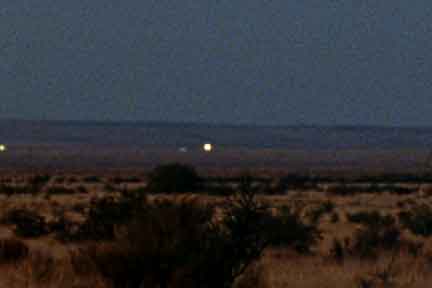
In a faded blue T-shirt and house-paint splattered jeans, Milwaukee’s recently anointed poet laureate, Matt Cook, shared a pitcher of beer with me during a ranging and refreshing discussion on poetry’s place in the world and, well, the world at large. While I had good stuff for the story – which you can read here, thanks to Matt and Tyler at the Milwaukee Record – there were plenty of other intriguing and funny stuff that came out during our talk. It certainly deepened my appreciation for his winding production at readings and in his books, both of which I’d strongly recommend.
So, below, I’ve shared some responses Cook had to a few of my questions that didn’t appear in the article. The lead-ins for each should provide context though, for full disclosure, I should note that I prattled on about my dismay over the lack of Philip Glass selections on Internet jukeboxes and shared my thorough distaste for Dallas, Texas (after spending the first 9 years of my life in 1980s Dallas and Carrollton, I believe I’m afforded that latter stance).
On the Cranked Stereos at Neighborhood Construction Sites:
“The contractors on my block are always listening to classic rock. I think there’s something about contractors always listening to classic rock. That’s all they want to hear.”
On Tiny Surprises in Tejas:
“I drove all the way across Texas. We drove from Texarkana to El Paso and there are a lot of cool places. Have you been to Marfa? Marfa is cool. I would move there. I would live in Marfa. It’s a small town but there are sophisticated people there. It’s cool. It probably should break away.”
On Standards and Creativity, with Age:
“[A]s you become older and wisdom increases, that passion and creative fire kind of dies down. You gain something and you lose this other thing. I think my older poems may be more immature and – I don’t like them as much as my newer ones – but they have more fire to them. Maybe. Or maybe there was more ‘Fuck You’ in those old poems. A friend of mine, a poet and a younger guy, I can tell he’s disappointed my poems don’t have as much ‘Fuck You.’ Like, he wants a strong dose of Fuck You,’ which I can relate to.”
On the Inspiration from Words (but Not Really from Academic Publication):
“I like to play with some of those clichés in journalistic and academic writing, somehow try to make them fresh again. … Everyone tries to define poetry and there are a thousand definitions which are somewhat helpful [laughs] and somewhat unhelpful. But, um, I kind of think poetry is the one form of writing where the words aren’t subordinate to anything else. In fiction writing, even great fiction writing, the words are subordinate to the narrative. You still have … these tedious sentences like, ‘And then he left his apartment and got into his car.’ You have to describe that action, say that he’s leaving his apartment and going to his car, even though it’s tedious and not very artistic. Obviously, some writers do it better than others. And … journalists are taught to take their voice out of the writing. It’s very objective. But with poetry it’s completely not subordinate to anything else. It’s about the language. I think it starts with the language, that’s where the poetry starts. For me, it starts with something I find interesting or funny about certain language and that will be the springboard for the rest of the poem. Other poets are more focused on the narrative or an event, but with me it’s the language. It’s the sound, the noise of it. If it was just writing on paper and sending it off to publication … I have a lot of poetry friends who don’t like reading their poetry out loud, some who are quite proud of that, but for me, I don’t think I would have gotten interested in it had it not been for the possibility of performing it. If it was just putting a poem in an envelope and sending it to The Missouri Review and then either hearing yes or no … That’s it? That’s the whole experience? For some poets that’s enough but I just can’t do that.”
On the Differences Between Funny Poetry and Stand-up Comedy:
“[Comics] tell jokes directly and that’s fine and their audience isn’t interest in that [language aspect]. But I’m interested in that, so poetry has always been the place for me. I have read poems with comics like David Cross, who did a blurb in my book, and I read with him at The Largo in L.A. which is one of the biggest places for stand-up comedy going. And that was a fun show that had a crossover between comedy and poetry. … I am interested in the cross-section between poetry and comedy and I’ve done a few things done in Chicago, [at] A Jangleheart Circus. It was amazing! I had never heard of it, and they have five stages and I did a few riffs. The crowd was small. The comedy stages were attracting bigger crowds but it was good. … My brother was saying, ‘Why do all of these comedy clubs tend to attract this kind of corporate crowd?’ Our conclusion was that those people go to comedy clubs because they don’t know anyone who’s funny. People like us, all of our friends are funny so we’d never need to pay for comedy. But there’s this weird corporate scene of square people, a very different demographic.”